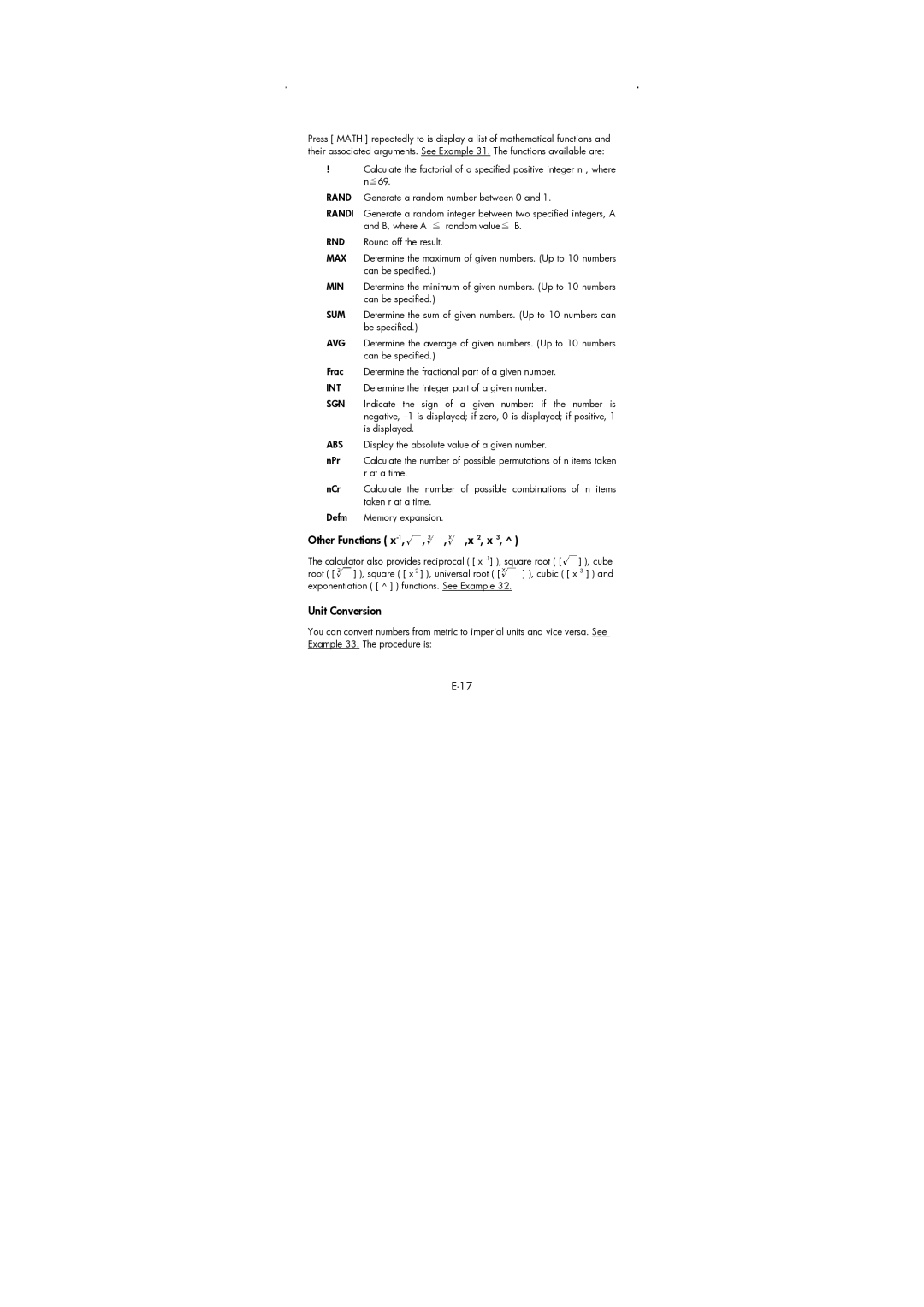Press [ MATH ] repeatedly to is display a list of mathematical functions and their associated arguments. See Example 31. The functions available are:
!Calculate the factorial of a specified positive integer n , where n≦69.
RAND Generate a random number between 0 and 1.
RANDI Generate a random integer between two specified integers, A and B, where A ≦ random value≦ B.
RND Round off the result.
MAX Determine the maximum of given numbers. (Up to 10 numbers can be specified.)
MIN Determine the minimum of given numbers. (Up to 10 numbers can be specified.)
SUM Determine the sum of given numbers. (Up to 10 numbers can be specified.)
AVG Determine the average of given numbers. (Up to 10 numbers can be specified.)
Frac Determine the fractional part of a given number.
INT Determine the integer part of a given number.
SGN Indicate the sign of a given number: if the number is negative,
ABS Display the absolute value of a given number.
nPr Calculate the number of possible permutations of n items taken r at a time.
nCr Calculate the number of possible combinations of n items taken r at a time.
Defm Memory expansion.
Other Functions ( x-1, ,
, ,
, ,x
,x 2, x 3, ^ )
The calculator also provides reciprocal ( [ x ![]() ] ), cube
] ), cube
root ( [![]() ] ), square ( [ x 2 ] ), universal root ( [
] ), square ( [ x 2 ] ), universal root ( [![]() ] ), cubic ( [ x 3 ] ) and exponentiation ( [ ^ ] ) functions. See Example 32.
] ), cubic ( [ x 3 ] ) and exponentiation ( [ ^ ] ) functions. See Example 32.
Unit Conversion
You can convert numbers from metric to imperial units and vice versa. See Example 33. The procedure is:
